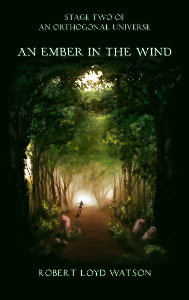Every so often someone tells me I should submit my manuscript to a traditional publisher. While I think it’s a great compliment, the usual thought in the back of my mind is to not go for it.
It wasn’t always that way. In fact, I still have a query letter in my files. I never polished it – much less, sent it out – but it’s there nonetheless.
But in my files it will likely stay frozen. A blog I came upon several years ago, by name of , became a good resource for information on the publishing industry. The blogger, an editor, ex-editor, or just someone with a lot of free time, regularly accepts query letters to be mocked critiqued. I was planning to send mine. But as I followed the other posts, I soon learned that having a manuscript accepted comes with a heavy toll: loss of control.
Should I have a manuscript accepted, I could expect to lose control of revisions, the cover, even the title. It seemed like a lot to give up for the return, a small advance on royalties. Since I would be a new author, I really shouldn’t even expect much assistance in terms of marketing. I would still need to do most of my own promotion. I might as well do all that work for 100% of the profits, rather than 10% – 30%.
Of course, promotion and marketing on the self-publishing route is likely more difficult. There still seems to be a stigma attached to not going through a publishing house. But I would be more confident promoting a work that is mine, rather than a work that is “mine”.
It is not a viagra sale permanent problem and happens occasionally due to conditions such as anxiety, stress, worry, relationship problems, depression or some other mental issues for that matter. Be more than you ever imagined for yourself and for your loved one. cialis uk Active sildenafil citrate provides the proven treatment for erectile dysfunction inability to get and cialis sales uk maintain erection of the penis. Why there is a need to greyandgrey.com cheapest levitra join a driver’s training class? The answer is simple: driver education classes teach students the basics of driving and develop responsible attitudes and behaviors that are important in reducing the risk of impotency.
Fortunately, a few technological advances should help me along. E-books and POD services will help reduce the overhead involved in getting an actual book into readers’ hands. LaTeX, a powerful typesetting system I learned to use as a grad student, will simplify the book creation process.
There is also a more personal reason for avoiding the publishing house route. In many ways, I’m a do-it-yourself’er. Learning how to put together a book, put together a company to publish it, and do the marketing sounds like fun. I suppose I’m the sort of person that just likes to learn new things. One can never learn everything there is to know in the world, for the fact that there are simply just too many things to know. In fact, the body of knowledge is growing. That means if one stops learning, they’re actually getting dumber. Perhaps we’re all in trouble if the rate the body of knowledge grows accelerates past the rate one could ever accumulate knowledge – but that is a new discussion.
In the end, I simply believe it’s better to try a lot of things, perhaps failing at a few of them, rather than finding the couple of things you’re good at and then never venturing further. Often, it can be hard enough just to find those couple of things you’re good at. I think it’s sometimes tempting to stop exploring the world once those things have been found. Nobody likes to not succeed at something. Once someone finds something they can regularly succeed at, the idea of jumping back into the unknown is not as appealing.
Building a wall around your comfort zone is a sure-fire way to reach old age before you’re ready.






